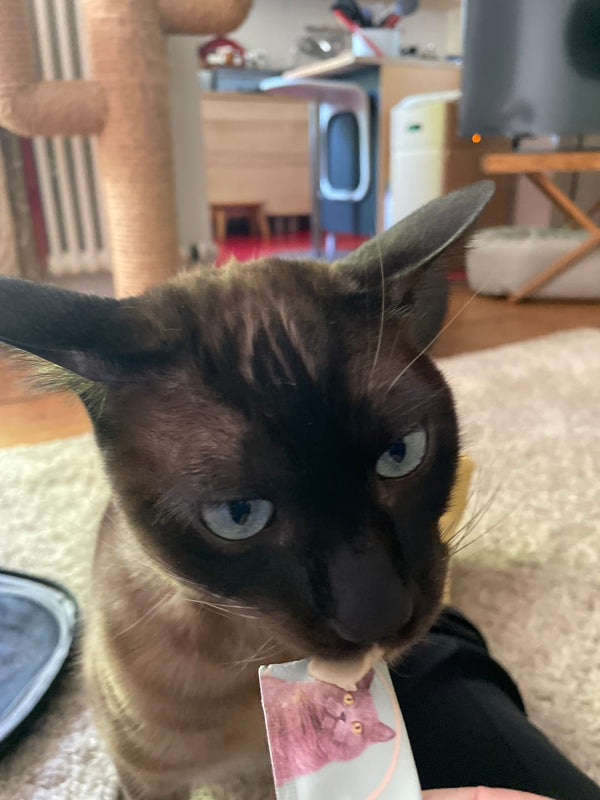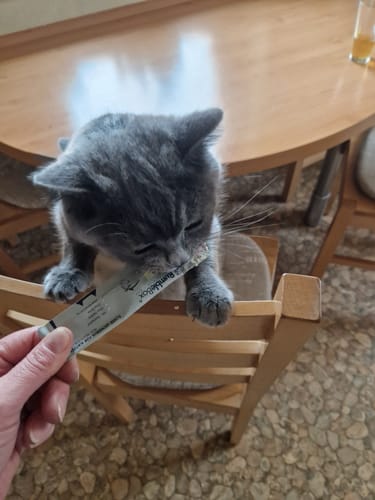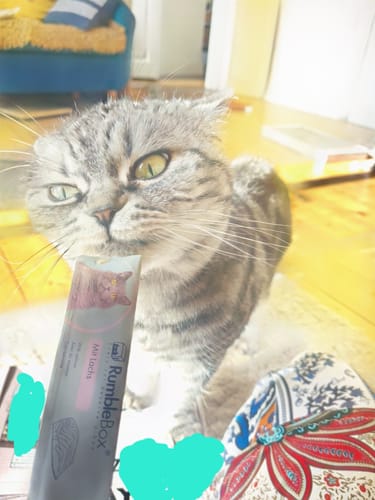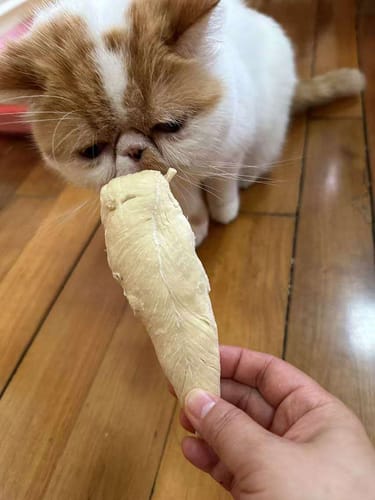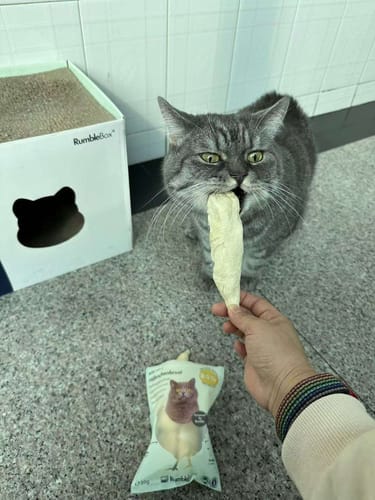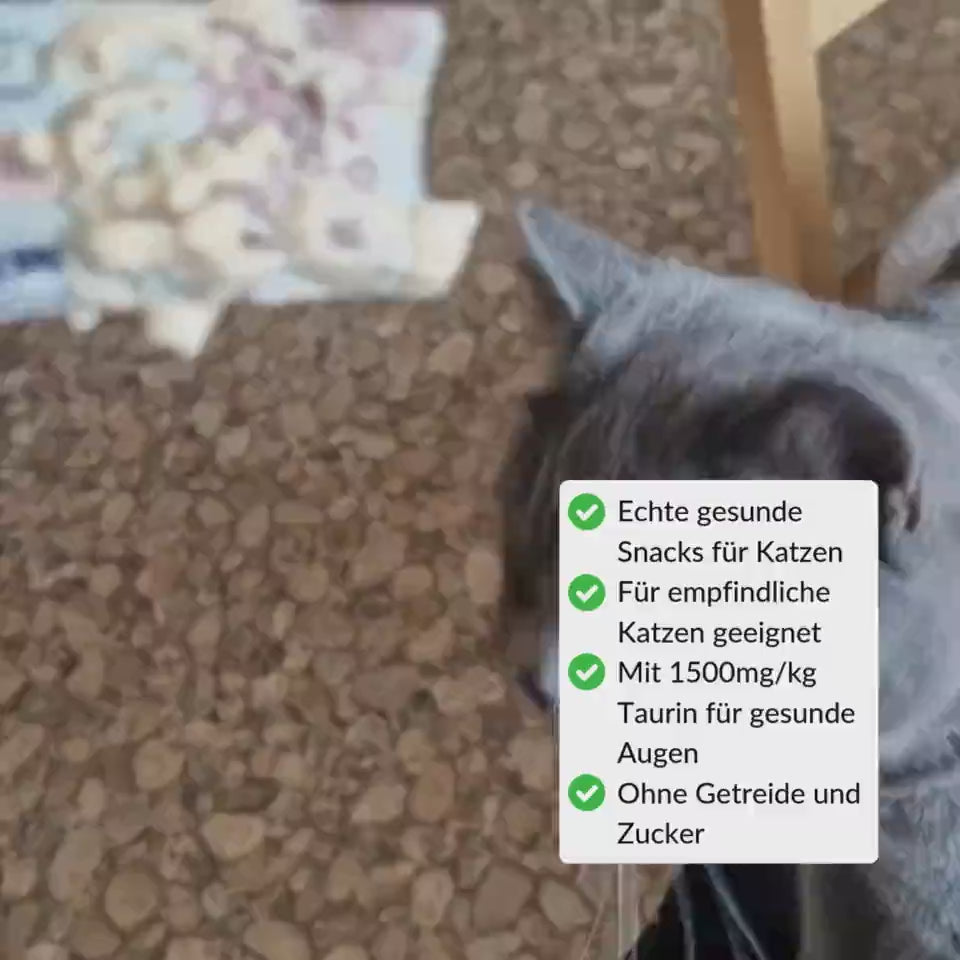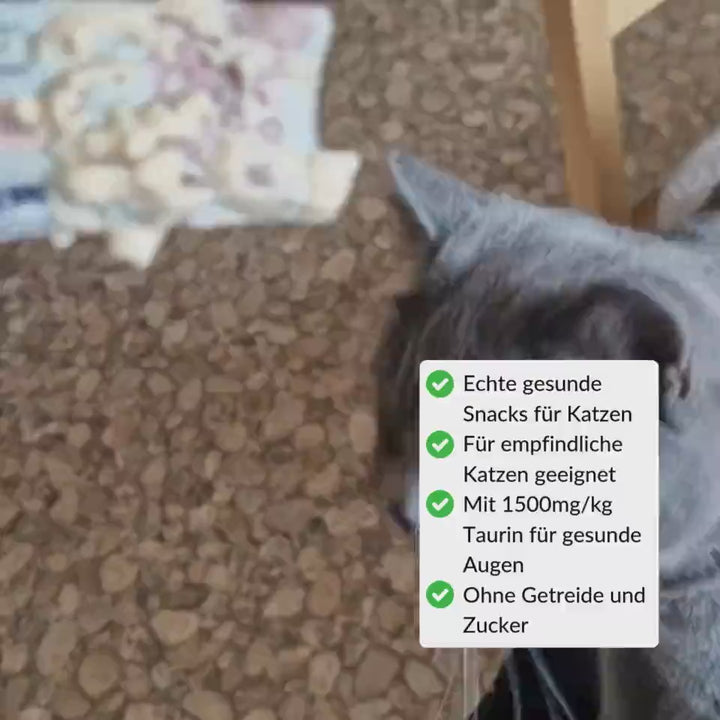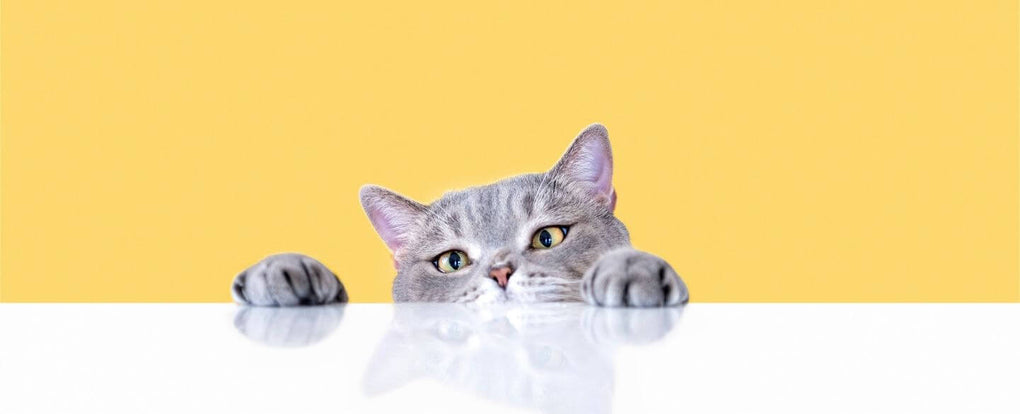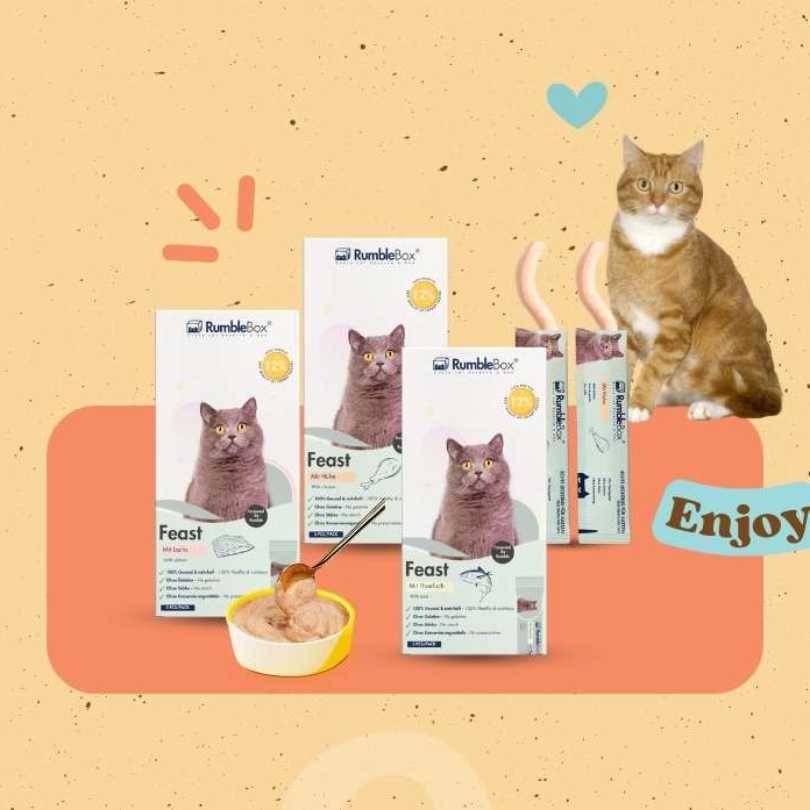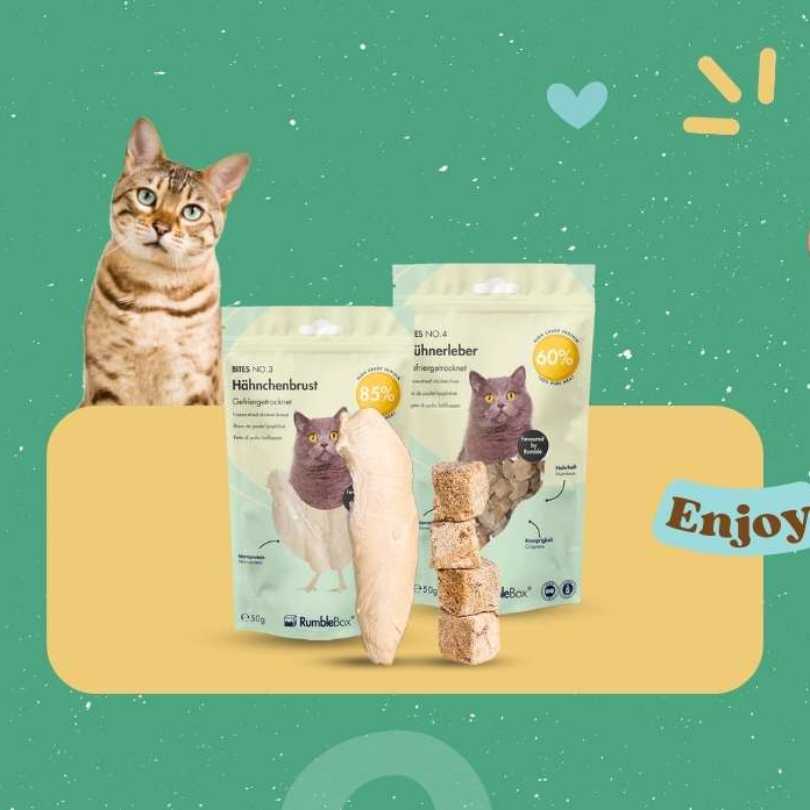Vitamins for cats: What you absolutely need to know
Why Vitamins Are Important for Cats
Vitamins control and regulate vital functions in your cat's body, such as metabolism, growth, immune defense and cell renewal. Since cats cannot produce many vitamins themselves, they must absorb them through food.
But be careful❗: Cats have different nutritional needs than humans. For example, they can produce vitamin C themselves, while humans have to get it from their diet. At the same time, cats need vitamin A from animal sources because they cannot use plant-based beta-carotene.
Vitamins for Cats at a Glance
Vitamins are divided into two main categories:
Fat-soluble vitamins
These vitamins (A, D, E, K) are stored in the body, mainly in the liver and fatty tissue. However, excess can be toxic because the body breaks them down slowly.
- Vitamin A : Important for eyes, skin and immune system.
- Vitamin D : Essential for bones and teeth as it regulates calcium absorption.
- Vitamin E : Antioxidant that protects cells and strengthens the immune system.
- Vitamin K : Necessary for blood clotting and wound healing.

Water-soluble vitamins
These vitamins (e.g. the B vitamins and vitamin C) cannot be stored in the body and must be consumed regularly through food. Any excess is excreted in the urine, which reduces the risk of overdose.
- B vitamins : Support metabolism, the nervous system and energy production.
- Vitamin C : Cats can produce it themselves and therefore do not need additional sources.
The Most Important Vitamins for Cats
Fat-soluble vitamins
Vitamin A (retinol)
- Function : Supports vision, skin health and the immune system.
- Sources : liver, kidney, eggs, high-quality wet food.
- Deficiency symptoms : night blindness, skin problems, weakened immune system.
- Caution : Too much vitamin A can cause poisoning, especially if excessive liver feeding occurs.
vitamin D
- Function : Regulates calcium and phosphorus levels and promotes strong bones and teeth.
- Sources : fish (e.g. salmon), egg yolk, fortified food.
- Deficiency symptoms : rickets, weak bones, tooth loss.
- Caution : Cats can synthesize small amounts of vitamin D in sunlight, but this is not enough. They are dependent on the supply from food, e.g. high-quality ready-made food.
vitamin E
- Function : Protects cells from oxidative stress, supports the immune system.
- Sources : vegetable oils (e.g. wheat germ oil), nuts, seeds, animal products.
- Deficiency symptoms : muscle weakness, fertility problems, anemia.
vitamin K
- Function : Important for blood clotting.
- Sources : leafy vegetables, liver, animal products.
- Deficiency symptoms : tendency to bleed, delayed wound healing.
Water-soluble vitamins
B complex (B1, B6, B12, etc.)
- Function : Supports energy metabolism, the nervous system and blood formation.
- Sources : meat, eggs, cereal products, vegetables.
- Deficiency symptoms : loss of appetite, weight loss, neurological problems.
vitamin C
- Function : Antioxidant that strengthens the immune system and protects cells.
- Special feature : Cats can synthesize vitamin C in their liver, which is why they do not need external sources.

Differences between humans and cats: What you need to know
- Vitamin A : Humans can convert beta-carotene from vegetables (e.g. carrots) into vitamin A, but cats cannot. They need vitamin A directly from animal sources.
- Vitamin C : While humans need to get vitamin C from fruits and vegetables, cats' livers produce enough of it.
How do you provide your cat with vitamins?
Natural sources in feed
- High-quality cat food : Many premium brands already contain a balanced mix of vitamins.
- Fresh meat and fish : Provides natural vitamins such as B complex, A and D. 👉 Find out more about it in our article. [Taurine for cats: Essential amino acids at a glance]
- Eggs and oils : Good sources of vitamins A, D and E.
- Snacks with a high meat content : RumbleBox's freeze-dried snacks made from pure meat are not only a delicious reward, but also provide natural vitamins such as B complex and A - ideal for in-between meals.
In certain cases, such as pregnant cats, older animals or after illnesses, the need for vitamins may increase. However, vitamin supplements should only be given after consulting a veterinarian, as an overdose can be dangerous.

How to keep your cat healthy
The right supply of vitamins is essential for your cat's health. A balanced diet with natural sources is the best way to avoid deficiencies. ❤️
Thank you for reading this far – it really means a lot to us! We hope you found something useful and maybe your cat is already looking forward to a little something extra. See you soon and lots of purrs!
By the way
Many cat owners pay close attention to the ingredients in their cat's main food , but often forget about treats .
Snacks often contain sugar, grains and artificial additives that can be harmful to health in the long run.
Anyone who truly wants to feed their cat a completely healthy diet should also rely on natural ingredients here:
Hypoallergenic treats without additives – naturally from RumbleBox. Perfect as a reward, during training, or simply as a snack.
Over 2,500 cats have already switched to healthy snacks!
💚






